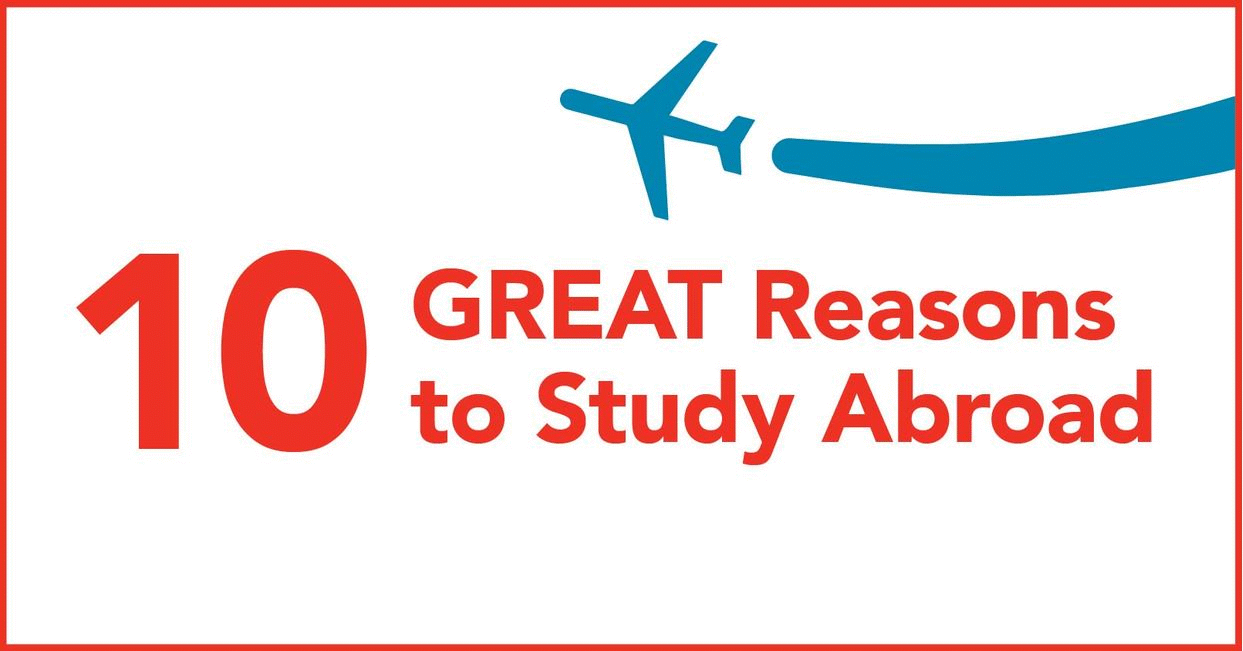

Why Study Abroad
Globalization has changed the way the world works, and it is increasingly critical to have cross-cultural competence and cutting-edge technical skills in the market for today and in the future.
PricewaterhouseCoopers predicts that by 2050, the E7 (China, India, Brazil, Russia, Indonesia, Mexico, Turkey) will be more than 50% larger than the G7 countries (the U.S., UK, France, Germany, Italy, Canada, Japan) when measured by GDP at market rates. The National Intelligence Council’s “Global Trends Report 2030” projects that China will surpass the United States as the world’s largest economy by 2030. A study by the British Council, entitled Culture at Work, shows that employers are under strong pressure to find employees who have both technical knowledge and “soft skills” such as critical thinking, problem solving, time management, and communication, deemed necessary for success in a global workforce.
Many employers feel that “graduates are leaving school unequipped with the skills necessary to function successfully in the workplace.” Many reported gaps in technical skills and soft skills like communication, problem-solving, and teamwork – key skills that study abroad develops. IIE’s Gaining an Employment Edge study found that over 70% of students reported that their study abroad experiences significantly helped develop their intercultural skills, flexibility and adaptability, self-awareness, curiosity, and confidence.
Study abroad is one of the best ways to acquire global skills and access personal and professional opportunities.
Study abroad is a life-changing experience for many students, opening their eyes to different ways of life and promoting understanding and tolerance. From elementary through post-graduate education, global engagement and exposure can profoundly change a student’s life. By looking at research on the more directly quantifiable aspects of study abroad impact, studies show students who study abroad have better grades, experience less attrition, and graduate from college at higher rates than students who do not study abroad.
- An analysis by the Consortium for Analysis of Student Success through International Education (CASSIE) found that those who studied abroad were 6.2% more likely to graduate in 4 years and had an average GPA 0.16 point higher than those who did not study abroad.
- Study abroad can be particularly impactful for first-generation students and underrepresented minorities, with those who study abroad 11.6% more likely to graduate in 4 years and earn a 0.12 higher GPA than similar students who did not study abroad.
- In a study of AIFS Foundation AYA alumni, more than 90% said that participating in a secondary education exchange program developed or improved key skills for post-secondary education and entry to a global workforce.
- A study by SIT of their program alumni found that a 72% reported that their study abroad experience significantly impacted their career choices and helped when applying for jobs.
Employers also recognize the value of study abroad to develop workforce skills.
- According to the World Economic Forum Future of Jobs Report (2020), employers rated critical thinking and analysis, problem-solving, and self-management as the most critical skills for the global workforce moving into 2025.
- Employers increasingly see international internships as a key recruitment pipeline and way to identify globally aware and competent employees. In 2018/19, approximately 25,000 U.S. students worked abroad or completed an international internship for credit.
- 85% of study abroad alumni of IIE-administered programs list their international experience on their resume and 73% discussed aspects of their experience during job interviews.
- AIM Overseas reported “61% of employers agree that an overseas study experience is [positive] on a resume. Additionally, 72% of employers agree that knowing a second language adds to the appeal of a prospective employee. The same study reported 95% of students found the exchange experience as useful with regard to their future career plans.
- Based on responses from 13,0000 hiring managers and CEOs, the 2020 QS Global employer survey found that 25% of respondents said that international experience was a recruitment priority.
- Study abroad alumni have better job prospects. Based on a survey conducted by IES Abroad, 67% of study abroad alumni found their first job within six months of graduation.
IIE’s Generation Study Abroad provides resources to students, parents, and international education professionals who are engaging in study abroad and making the case for its significant value. We must ensure that this generation and future generations of the U.S. workforce possess knowledge of other countries and cultures and are competent in languages other than English. It is more important now than ever for students to gain global competency skills so that they can succeed in the global marketplace.
From IIE’s A Student Guide to Study Abroad
“The ability to work across cultures is no longer a nice-to-have skill set for elite executives; every year it becomes more essential to finding any job at all. A machine operator at a plant in Topeka that exports aircraft parts to Brazil needs to know how to interact effectively when Brazilian customers come to visit. A nurse’s aide at a Houston hospital that serves a large Hispanic community has to communicate with family members in ways that encourage rather than discourage patient compliance.”
Stacie Nevadomski BerdanCo-author and international careers expert
“The beauty of studying abroad is gaining a broader understanding of other cultures. Having access to other people and building relationships with those people on their home turf enables one to think more creatively and flexibly, necessary skills in today’s competitive work environment. If a student can bring that understanding and knowledge back to the USA, the sky’s the limit!”
Frank AbateDivision Manager, JM&A Group
“As a 35-year old, I believe that my generation is the last one to be able to use global experience as a differentiator. Globalization has now become a requirement to compete and succeed.”
Adam MichaelsPrincipal, Booz & Co.